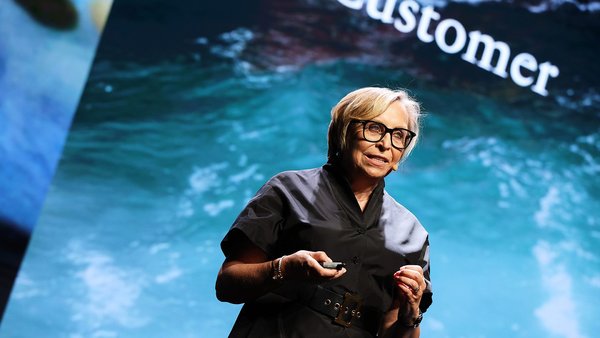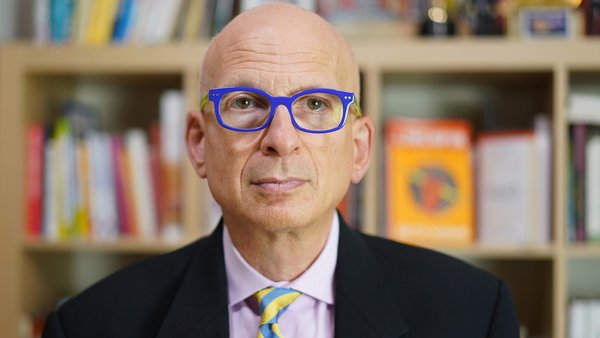How Led By Donkeys mixes Twitter and billboards to make politicians go ‘uber viral’ /
Contagious talks to Led By Donkeys co-founder Ben Stewart about creating one of the most high profile and high impact outdoor campaigns of the year
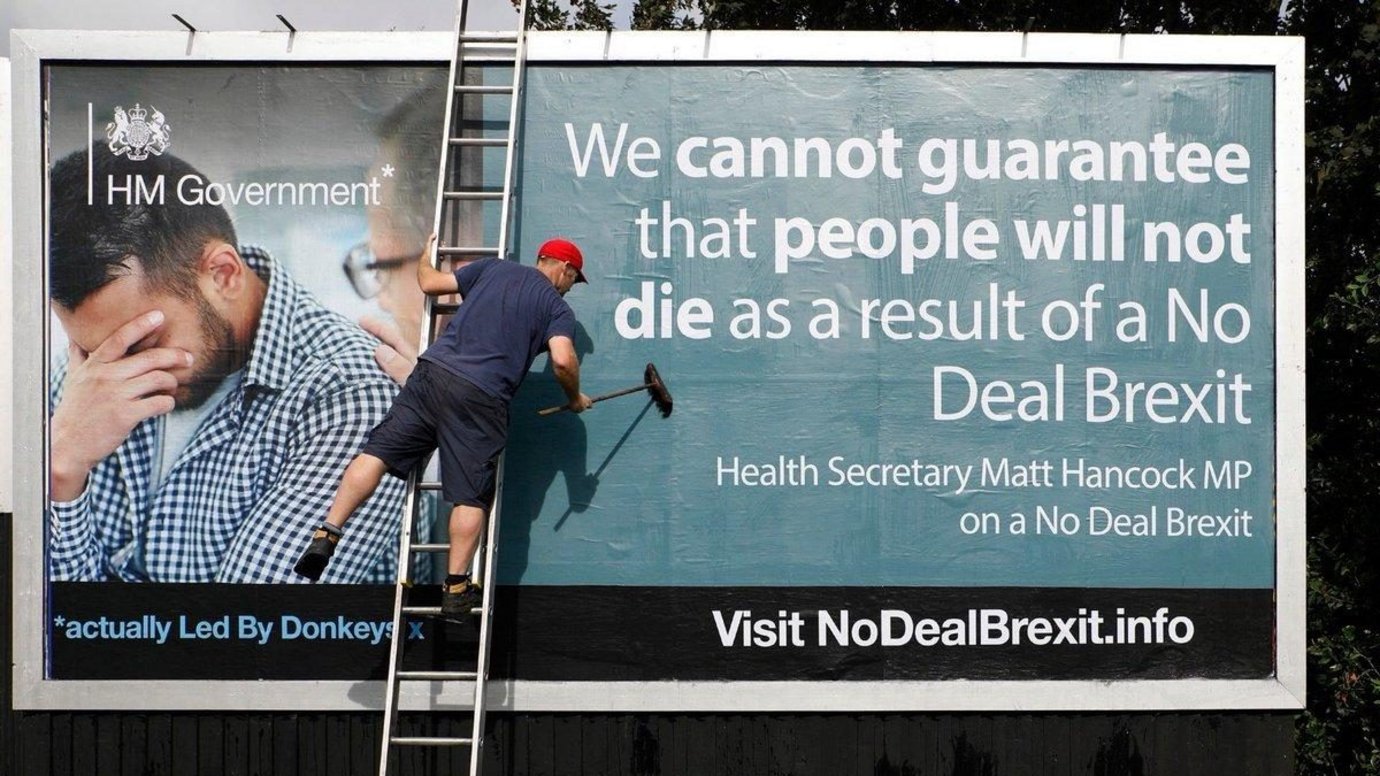
In December 2018 four friends sat in a London pub talking about prime minister David Cameron’s ‘chaos with Ed Milliband’ tweet from 2015 and how badly it had aged, in light of what had happened to UK politics since the EU referendum.
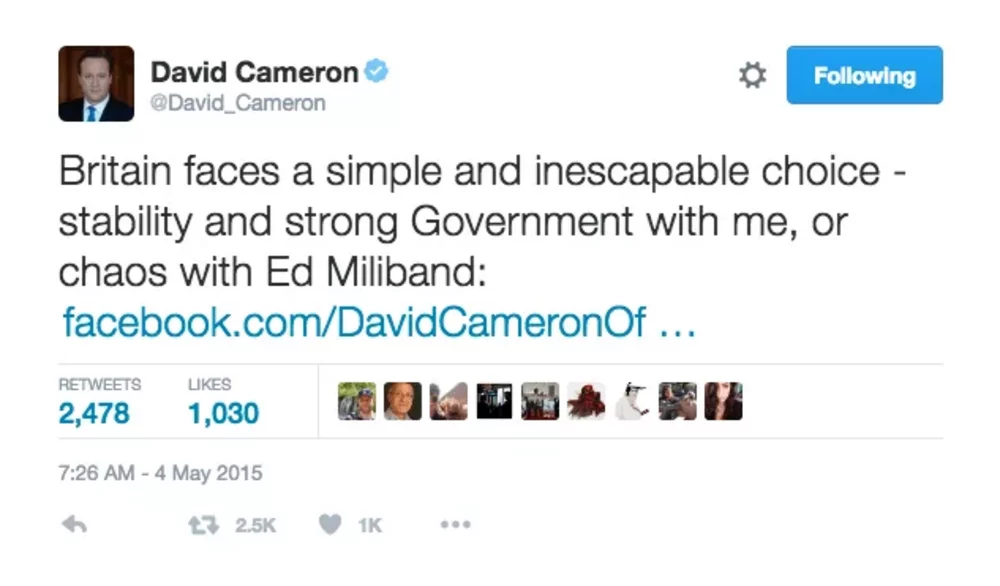
The tweet summed up what they saw as the utter failure of the UK’s political class and they wanted to draw attention to it. One of the group suggested they stick it on a billboard, like the one they could see from outside the pub window.
Similar chats were probably taking place in pubs up and down the country at that time; the difference was these four men followed through on their banter. They paid a printer to make the giant poster and then one night in January they pasted Cameron’s tweet over a Halifax building society billboard ad, and then posted a picture of their handiwork to a Twitter account they created especially for the occasion, calling themselves Led By Donkeys.
Today, Led By Donkeys has almost 300,000 Twitter followers. It has also raised tens of thousands of pounds through crowdfunding (and is close to hitting £200,000 in its latest round), influenced the news agenda, and become part of the fabric of the Brexit conversation.
James Sadri, Oliver Knowles, Will Rose and Ben Stewart – the four friends who founded Led By Donkeys – have let their ambition grow beyond billboards over time, too. The group have projected their messages onto the white cliffs of Dover, sculpted them into 7,500 square meters of beach in Redcar and put them on massive, football-stadium style banners.
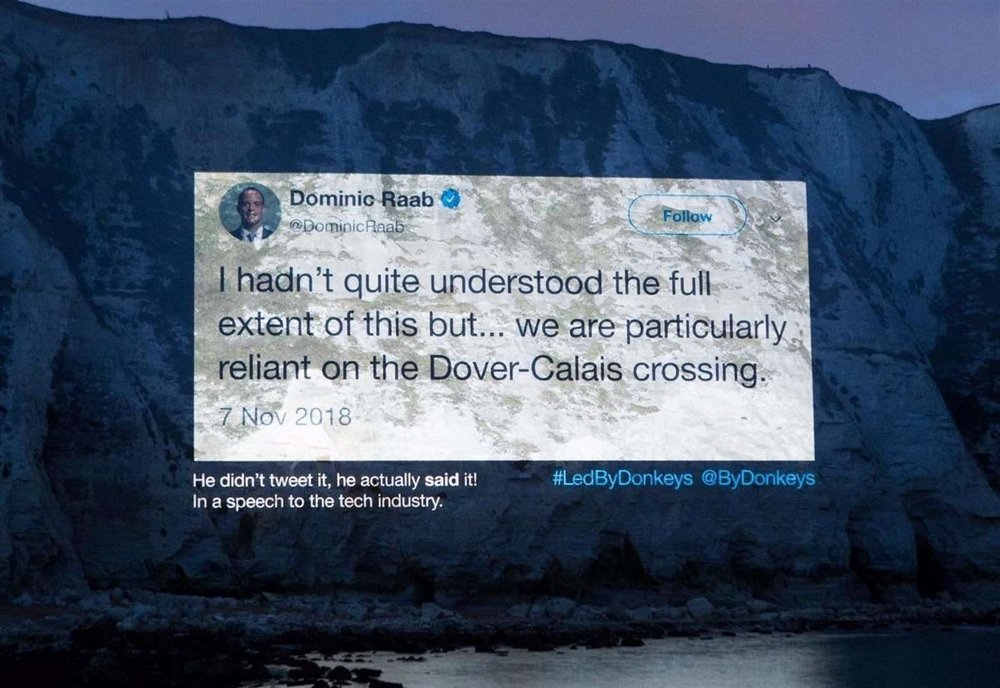
This week Led By Donkeys has launched its first crowdsourcing campaign. It has created a website where people can build easily put together billboards mocking the government’s Get Ready For Brexit advertising campaign, and invited Armando Iannucci, a writer and director, and David Schneider, a comedy actor and writer, to judge the best entries, which will be made into real-life billboards.
Contagious interviewed Ben Stewart to find out why Led By Donkeys was now seeking input from the public, and also ask about the strategy and creative inspiration behind what has been one of the most high profile and high impact outdoor campaigns of the past year.
Lots of people probably have conversations down the pub like the one you had in December. Why do you think you four actually followed through with the chat?
It’s quite a struggle being a remainer in Brexit Britain at the moment, and it certainly was back in December and January. It was when [former prime minister] Theresa May was trying to get her withdrawal deal through. All the ERG [European Research Group] politicians were saying that it represented servitude and vassalage, and these were the same people saying back in 2015 that if we voted to leave we would hold all of the cards and the European Union would crumble beneath the awesome might of our negotiating position. And it was like: ‘these people are so utterly utterly full of shit and they’re going on the TV and no one’s calling them on it.’
So we thought if we dig out all their quotes and put them up on billboards then it might force the media to start an interview with Liam Fox by saying, ‘hang on, this is meant to be the easiest trade deal in history?’ Or starting an interview with Nigel Farage by saying, ‘hang on, you said if you lost the referendum by 52-48 then this would be unfinished business?’
So we had a strategy behind it, but as well as that it was a deeply cathartic experience: to go out and actually do something, rather than have Brexit become something that just happens to you.
Also, we’re all older and dads now, but in our younger years we were all activists [all have links to Greenpeace]. So we have a little bit of the ethos of optimism of the action still within us. We might all have kids and be managers balancing budgets, but in the dim and distant past we would do stuff like this. So it was like dusting off the kit and doing something again. And it felt good. Didn’t quite expect it to get as big as it did but it felt good.
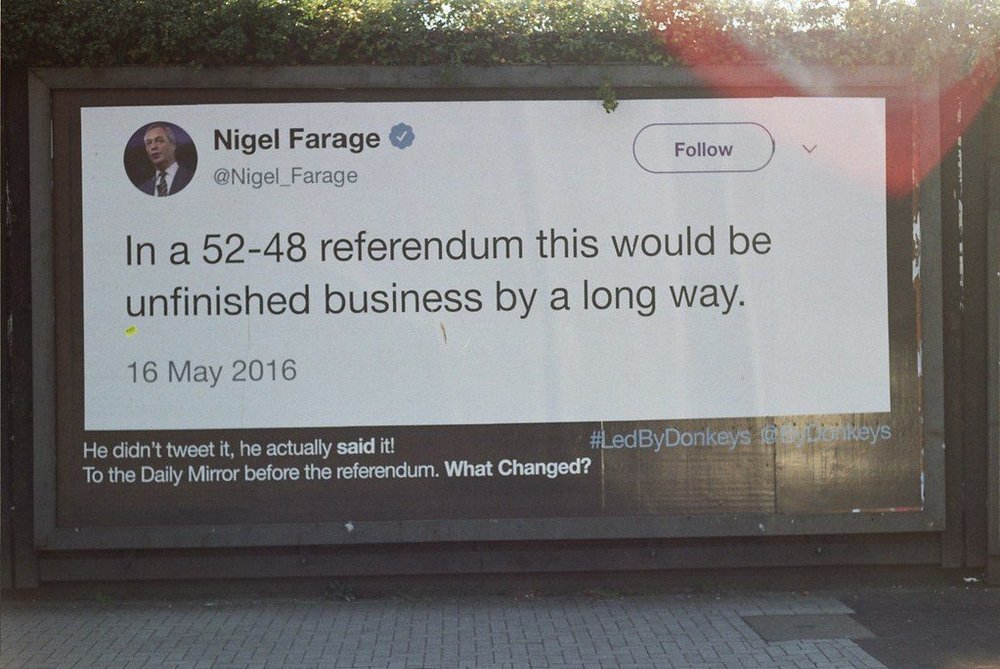
So the strategy behind the billboards was to put pressure on the media to put pressure on the politicians?
There’s been different stages. Right at the start if you’d have tapped us on the shoulder as we were putting up various posters in Dover and said: why are you doing it? It would have been, ‘because it feels cathartic, because we’re bringing some measure of accountability to what people have said.’
But if you want a more sophisticated strategy then, yes, it’s about making these quotes famous so that the media feels obliged to ask interviewees about their assertions during the 2016 referendum before allowing them to make claims at odds with what they said. And what we found was that after we did Dover there was a double page spread in The Times on our poster campaign where the various Brexit leaders had been called to account for what they previously said.
Ben Stewart, Led By Donkeys
And then when we became crowdfunded there were multiple strategic elements. One of them was to hack the local and regional media. By hack I mean to get into it with our message. We put up posters around the country and then we would press release them, and a lot of the time when a local paper covered them it was the most read or commented upon article on their website.
So we were were trying to get into Brexit conversations on our terms and start a conversation between remainers and leave, where the founding principle in those conversations was: ‘this is what we were promised in 2015, are the people who promised it delivering?’
Interestingly, there was a kind of digital to analog to digital to analog feedback [...] These quotes had been doing the rounds on Twitter and Facebook for weeks or months without any effect, but by putting them up in the real world then taking photographs of them and feeding them back into the digital world on social media channels, then suddenly quotes that were previously ignored were getting 10,000 retweets.

That’s really what we wanted to talk to you about. What do you think you have hit upon with this online-and-offline strategy, and why is the combination so much more powerful than either medium by itself?
One reason why it works is that social media is pretty ephemeral and there’s this in built distraction when we see something. But a billboard exists in the real world; you can’t put a billboard up in a bubble. We were creating political street theatre in towns and cities across the country and people were seeing it in their ten of thousands, if not their hundreds of thousands, and we were hoping to force conversations about it. But that wouldn’t have been good enough to us.
The crucial thing to us was, by photographing them and seeding them back in to the digital world, something happened where those quotes suddenly had a kind of uber virality. We were making them famous by that old-world/new-world feedback where they were just bouncing off each other. I’m not saying that’s how we planned it, we just noticed that it works and so we massively invested in it.
Our theory of change is make this stuff famous because it can shift the narrative.
Why are you now inviting people to submit their own ideas for you to put up on billboards?
I think if the Get Ready campaign had been good we wouldn’t have felt so compelled to take the piss out of it. But it was such a woeful, dreadful campaign, and it’s just so transparent that it’s not about getting us ready for Brexit – it’s about making it feel inevitable – so it’s basically a party political campaign that we’re having to pay for. You can get angry or you can laugh at it. And tapping into the creativity and the satirical talents of the wider public is something we wanted to do.
There have been quite a few Photoshop versions of them but we know how to get billboards up in the real world...and we know how to film them and put them up on social media and get them to go viral. It’s just an opportunity for the public to see their efforts out in the real world, which is something quite special.
As well as that, it’s important to laugh at this government, it’s empowering [...] They have admitted that a no-deal Brexit could lead to food and medicine shortages but none of that is mentioned in their ad campaign. An honest government would be saying get ready for food and medicine shortages. Let’s get those adverts up.
That’s not just about catharsis, and it’s not this narcissistic thing: it has a genuine political impact for people to laugh about the ridiculous actions of this government – and we should.
Contagious is a resource that helps brands and agencies achieve the best in commercial creativity. Find out more about Contagious membership here.
Want more of the same? /
We don’t just write about best-in-class campaigns, interviews and trends. Our Members also receive access to briefings, online training, webinars, live events and much more.

